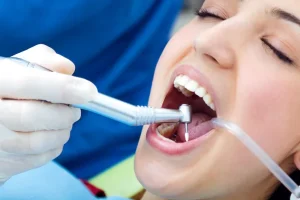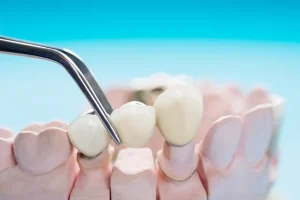Congratulations! You now have a beautiful smile once again because you replaced all your missing teeth with dental implants. You do want this smile to last, don’t you? It surely will, if you do what is required of you, and properly care for your new teeth. These are just like your real teeth and have to be cared for in a similar manner.
And oh, before we begin, know that regular dental visits are mandatory. So, be sure to decide a frequency, and schedule them with your family dentist beforehand.
Table of Contents
The period right after the surgery
Swelling
Swelling is likely to occur, but you can minimize it if you place ice packs right after the operation. Do this as soon as you can, preferably at the dental clinic itself.
Pain
Regularly take medicines which your dentist would prescribe.
Oral Rinses
Don’t rinse for a couple of hours after the operation, or your gums may bleed. However, you can sip some water after a while.
Temporary Restoration
Your dentist may place a temporary healing cap or tooth so that your mouth can heal quickly. Avoid using this jaw for chewing so that the implant stays in place.
Body Position
You would find it comfortable to sit than lie down. Even at night, when you sleep, keep your head upwards. Also, don’t lie on the side where your implant was placed.
Driving
Your driving ability might be impaired because of anesthesia or some medicines. So, don’t get behind the wheel for some time after the operation.
Oral Care
As important as brushing is, you should not brush the side where your implant was placed until your dentist removes stitches. Instead, clean your teeth with an oral rinse or as recommended by your dentist.
Food and Drinks
Don’t eat anything unless the effects of anesthesia have dissipated. Avoid hard, crunchy, acidic and spicy food the first day.
Also avoid black tea, coffee, alcohol, and nicotine for a couple of days after the dental implants procedure.
Caring for your teeth
Dental implants do last for decades, but only when you practice proper oral care. And if you don’t, plaque and tartar will build up, and cause potential problems.
- Clean your teeth with a soft or an electric toothbrush. Brush all upward, outward and inward surfaces that are used when chewing.
- Make use of all aids which your dentist recommends such as irrigation devices and interdental brushes, to clean the space between teeth.
- Ask your dentist about specific implant cleaning or flossing techniques that you should be using.
Reaching out to dentists near you
Generally, no complications arise after a dental implants procedure. Pain is minimal, and stitches are removed within 7 to 10 days. However, you may encounter some side effects. Reach out to dentists near you, if you notice any of the following:
- Too much pain
- Numbness even after 12 hours from the operation
- Unusual swelling or discomfort
- Continued bleeding
- Temporary tooth loss



